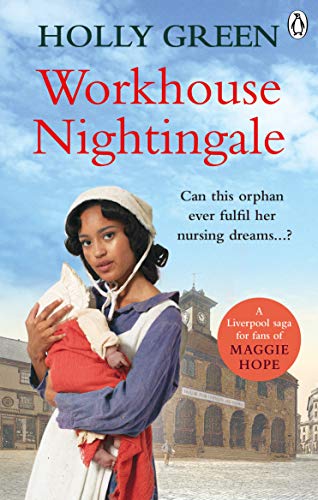Workhouse Nightingale
1850s. Dora Latimer, an illegitimate, mixed-race girl, is brought to England by her sea-captain father and brought up with his other children, to her stepmother’s disgust. After the captain’s death, Dora is demoted to being a servant and, when her half-brother abuses his position, leaving her pregnant, she is thrown out of the house. Taken into the squalid workhouse infirmary, Dora’s future looks bleak indeed. She sets about doing what she can to help the patients’ suffering by using the herbal remedies she learnt from her mother. But how long will the sceptical doctors allow that – even though the patients’ health improves? How could a girl in her position ever train to become a Florence Nightingale nurse?
I enjoyed this book. Holly Green has plainly done her research, and we are left in no doubt about the horrors of oakum picking, the appalling food, and the insanitary conditions in the workhouse. We are right behind Dora when the philanthropist Mr Rathbone offers her a chance to train at Miss Nightingale’s School and Home for Nurses in London. 1860s London is convincingly shown, both the pleasures and the pitfalls, as the unsophisticated Dora would have experienced it – as well as the insistence on hygiene and fresh air in Miss Nightingale’s School, and the realities of mid-19th century medicine. Dora has other problems to tackle, too, those of being mixed-race and well-educated but not, by birth, ‘a lady’. She must learn which of her fellow students to trust, and how to deal with male assumptions about how to treat a girl from her background from the, apparently, charming brother of her well-to-do friend, Lizzie. There is much here for the reader to enjoy: a good story backed up by accurate history, and believable characters.










